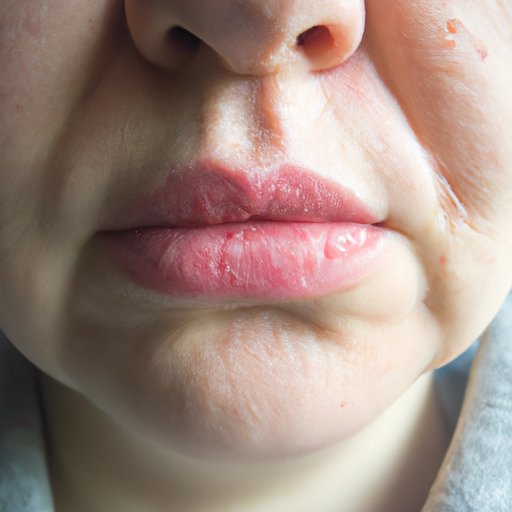Introduction
Lip swelling can be a frustrating and uncomfortable problem that affects many people. Whether it’s due to an allergic reaction, injury, or underlying medical condition, swelling can impact our daily lives and self-confidence. In this article, we’ll explore the various causes of lip swelling, from minor irritations to more serious issues, and discuss effective treatments and prevention strategies.
Causes of Lip Swelling
There are a variety of factors that can contribute to lip swelling. One of the most common causes is an allergic reaction. This may occur due to food, medication, or exposure to certain chemicals. Infections, such as cold sores or canker sores, can also cause swelling. Injuries to the lips, such as cuts or bites, can lead to swelling and discomfort. Let’s take a closer look at each of these possible causes.
Allergies: For some people, the immune system overreacts to a particular substance, resulting in an allergic reaction. Symptoms may include swelling, itching, and redness. Common allergens include certain foods, pollen, pet dander, and insect bites. If you suspect an allergy as the cause of your lip swelling, it’s important to identify the trigger and avoid it in the future.
Infections: Cold sores, also known as fever blisters, are caused by the herpes simplex virus and typically occur around the mouth and lips. These sores can cause itching, burning, and swelling. Canker sores, on the other hand, are not caused by a virus and may occur due to stress, injury, or certain foods. They can also be painful and cause swelling.
Injuries: Accidents happen, and the lips are a common site of injury. Cuts, bites, burns, and other traumas to the lips can cause swelling and discomfort.
Home Remedies for Lip Swelling
Thankfully, there are several remedies that can be tried at home to alleviate lip swelling. If the swelling is due to an injury, cleanse the area gently with warm water and apply a cold compress to reduce swelling. Over-the-counter medications such as ibuprofen can help to reduce pain and inflammation. Applying lip balm that contains sunscreen can also help protect the lips from further damage.
If the swelling is due to an allergy, it’s important to identify and avoid the allergen in the future. The use of antihistamines and soothing creams can be helpful in reducing symptoms. Natural remedies, such as applying aloe vera or tea tree oil, can also aid in relieving symptoms.
When to Seek Medical Attention
While home remedies can be effective, there are times when medical attention is necessary. If the swelling is severe, persistent, or accompanied by other symptoms such as difficulty breathing or rapid heartbeat, it’s important to seek medical attention immediately. This may be a sign of a more serious condition, such as anaphylaxis, which requires prompt medical attention.
Prevention Strategies
If you’re prone to lip swelling, taking preventative measures can help to reduce the frequency and severity of episodes. This may include avoiding known allergens, wearing protective lip balm, staying hydrated by drinking plenty of water, and maintaining good oral hygiene by brushing and flossing regularly. Managing stress levels can also be helpful in preventing outbreaks of canker sores.
Lip Swelling and Cosmetic Procedures
Lip injections have become a popular cosmetic procedure for creating fuller, more youthful-looking lips. However, the use of dermal fillers may result in swelling and bruising, especially in the first few days after the procedure. It’s important to follow the post-treatment instructions closely and avoid touching or rubbing the area. Applying ice packs can be helpful in reducing swelling and discomfort.
Potential risks and side effects should be discussed with a qualified medical professional before undergoing any cosmetic procedure.
Lip Swelling and Underlying Medical Conditions
In some cases, lip swelling may be a symptom of an underlying medical condition. Angioedema is a condition that causes swelling of the face, lips, tongue, and throat. Autoimmune disorders, such as lupus or rheumatoid arthritis, may also cause lip swelling. Infections, such as oral herpes or cellulitis, can lead to swelling of the lips as well. Early diagnosis and treatment are critical in managing these conditions and reducing symptoms.
Conclusion
In summary, lip swelling can be caused by a variety of factors, from minor injuries to more serious medical conditions. Thankfully, there are ways to manage and prevent lip swelling. If you’re experiencing swelling that is severe or persistent, seek medical attention immediately. Remember to take care of your lips by incorporating healthy habits, such as staying hydrated and avoiding known allergens. With proper care and attention, you can alleviate the discomfort of lip swelling and enjoy healthy, beautiful lips.
